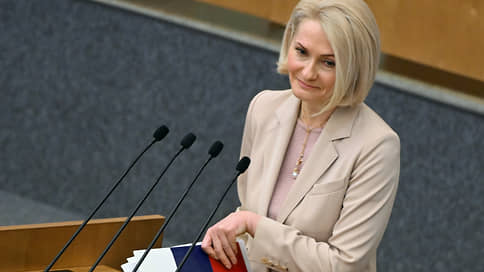You can’t pay off with Christmas trees – Newspaper Kommersant No. 69 (7514) of 04/20/2023
[ad_1]

The mechanism of compensatory measures may fall out of the experiment on quotas for emissions of pollutants by industrial enterprises – it is canceled by amendments to the law, which the State Duma intends to discuss today in the second reading. The RSPP, in a letter to Prime Minister Mikhail Mishustin, protests against this decision, believing that for companies that, including due to sanctions and technical reasons, will not be able to meet quotas, the experiment will de facto turn into an additional tax. The environmental block of the White House is in favor of amending the law, referring to the order of the president, the already shifted deadline for the end of the experiment from 2024 to 2026, and the fact that companies have not announced the implementation of compensatory measures. The risks of an increase in the burden on individual companies, including in the form of turnover fines, are quite high.
As it became known to Kommersant, the head of the RSPP, Alexander Shokhin, turned to Prime Minister Mikhail Mishustin with a request to give a negative review of the amendments to FZ-195 of July 26, 2019. They should be considered in the second (and, possibly, final third) reading today, April 20, their text, adopted by the State Duma Committee on Ecology, became available only on April 18 – and it is he who excludes provisions on “compensatory measures” from FZ-195. The changes, Mr. Shokhin writes, were not discussed with business and change the essence of the experiment – “the rules of the game … change dramatically in the course of its implementation.” A similar letter was urgently sent to the Chairman of the State Duma Vyacheslav Volodin.
We are talking about an experiment to limit emissions from industrial enterprises in 12 cities of the Russian Federation with the highest air pollution: it has been conducted by the government since January 2022 in relation to 423 industrial facilities, the deadlines for its completion were shifted from December 2024 to December 2026. Initially, the mechanism assumed, citing the RSPP letter, the possibility for companies “not to ensure the achievement of quotas” on time, “including in the absence of such an opportunity for objective reasons” when carrying out “compensatory measures” – planting trees, purchasing eco-transport, modernizing urban boiler houses. Emissions in excess of quotas for companies threaten with fines, including super-tough ones – up to 5% of turnover. The RSPP points out that less than four years remain until the end of the experiment, which is “half the length of the normal investment cycle” in heavy industry – that is, the amendments will make it impossible to work without fines.
According to Kommersant, the amendments have already been agreed upon by the relevant Deputy Prime Minister Victoria Abramchenko. A Kommersant source in the White House claims that they were developed “on behalf of the President”, a two-year delay received by business is sufficient, business representatives have repeatedly promised that “taking into account all their obligations, they will implement all their obligations, and people in cities with high pollution expect businesses to upgrade and reduce emissions, not just plant trees.” The Ministry of Natural Resources argues that compensatory measures “do not replace the need to achieve quotas, but only bear an additional burden on enterprises” and are not needed. The very possibility of such events “creates … the prerequisites for failure to fulfill plans to reduce emissions and achieve quotas, disruption of the Clean Air project, which carries risks to human health,” they say. The ministry also says that at the meetings of the interdepartmental council of the Ministry of Natural Resources in the first quarter of 2022, the plans of enterprises for quotas were considered – and no compensatory measures were announced in them.
Two arguments in the RSPP letters, however, remain relevant. First, since the first quarter of 2022, the situation has changed a lot, and some Western equipment for eco-modernization is no longer available for import. The second is that in a number of cases, compliance with quotas is possible only with a reduction in the physical volume of output, and some of them are obviously impossible to meet. That is, the alternatives for companies are the reduction of industrial production (mainly we are talking about chemistry and metallurgy, 12 cities of the Clean Air program are Bratsk, Krasnoyarsk, Lipetsk, Magnitogorsk, Mednogorsk, Nizhny Tagil, Novokuznetsk, Norilsk, Omsk, Chelyabinsk, Cherepovets and Chita) or payment of turnover fines. Now it is impossible to name their volume after 2026, it is estimated that it is billions or tens of billions of rubles per year of underinvestment. A purely political choice between eco-requirements and GDP growth has always been at the center of government programs of this kind, but right now there are more arguments on the side of the RSPP – which, apparently, required energetic and aggressive actions to amend legislation from supporters of toughening the eco-regime.
[ad_2]
Source link






